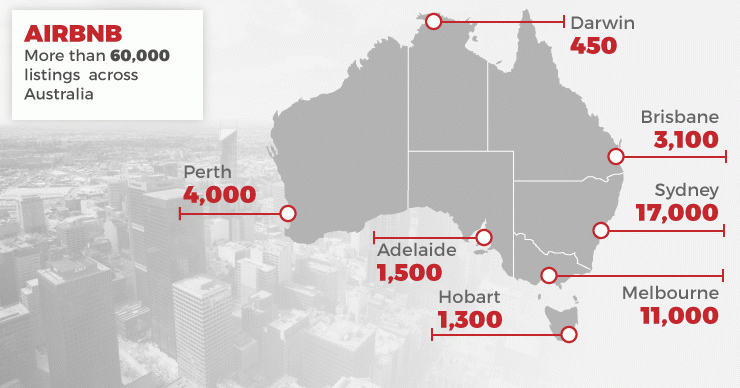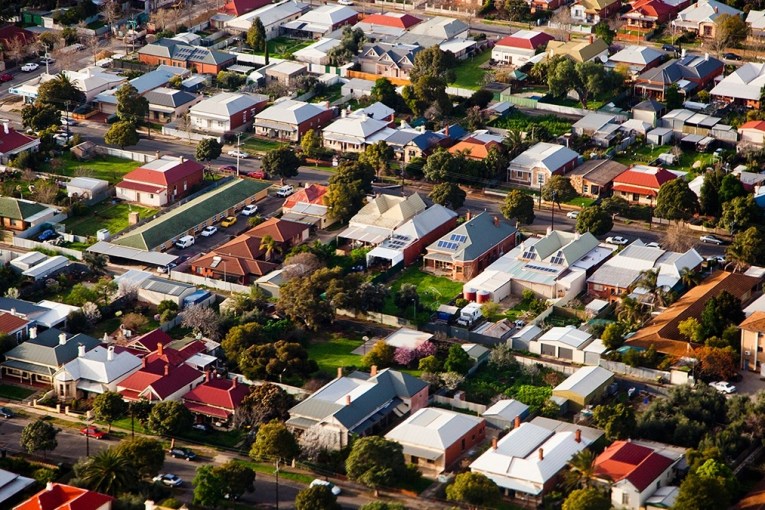Booming Airbnb gets another booster shot


Riding the digital property boom
Online accommodation rental portal Airbnb confirmed on Tuesday it now has 60,000 Australian properties on its books – and it expects to double that number over the next 12 months.
In what represents a property boom within the actual Australian property boom, Airbnb said more and more mums and dads and working families were generating additional income for themselves – with an average annual income generated from its platform of $7100.
And that number is set to grow sharply as more Australians contract the property rental bug.
• Record rental rates in big cities set to fall
• A slide in house prices will be good for the economy
• Apartment boom may be over in Sydney, Melb
An Airbnb spokesman also revealed that Sydney and Melbourne account for almost half of all the properties listed in Australia, with 17,000 and 11,000 listings respectively. Perth ranks a distant third, with around 4000 properties, followed by Brisbane.
The number of Australian properties listed on Airbnb has been doubling year-on-year ever since the website launched into our market five years ago, with awareness around the site increasing primarily through word of mouth.
“Airbnb is the easiest way for Australians to monetise their extra space and showcase it to an audience of millions,” the company’s spokesman said.
“Our hosts come from a diverse background and they tell us their Airbnb income helps them pay down the mortgage, cover utility bills and other everyday expenses.”
Airbnb’s latest numbers were disclosed as the NSW government announced moves to create a clearer regulatory framework for the so-called “collaborative economy” across the state, which encompasses income-earning websites such as Airbnb, ride-sharing app Uber and others that enable individuals to generate income via third-party portals.
In consultation with industry, the NSW government released a set of principles it said would underpin its policy and provide safeguards to consumers and businesses. These principles incorporate supporting a culture of innovation; fit for purpose regulation in the digital age; customer protection and safety; promoting competition; and agile government procurement.

Airbnb is one of the biggest players in the sharing economy.
The state’s Minister for Innovation and Better Regulation, Victor Dominello, estimated the collaborative or peer-to-peer sector contributed $504 million to the NSW economy last year.
“Digital innovation is transforming the way people do business in every city and every country around the world. The reality is the collaborative economy is here to stay,” he said.
“We are living in the information age and it is vital that government policies embrace new technologies and enable businesses to operate with certainty.”
A Deloitte Access Economics report estimates that more than 50 per cent of NSW consumers have used a digitally enabled shared product or service that includes transport, accommodation, education, employment and finance, and that 45,000 people earned income from the collaborative economy in the last year alone.
In spite of the company’s unabated rise as a major player in the short-term accommodation market, a spokesperson for the company maintained that its presence was not hurting traditional accommodation providers.
“Despite the rapid growth of Airbnb listings in Australia in recent years, Australia’s traditional accommodation industry is continuing to thrive,” the spokesperson said.
“According to a recent report from Deloitte, hotel occupancy rates in Australia are at an all-time high and the future looks bright. It also says that demand for hotel rooms is projected to grow at double the pace of supply over the next three years. That’s great news for everyone.”










